Humans
-
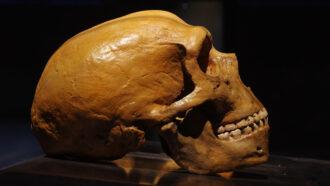 Health & Medicine
Health & MedicineSome Neandertal genes may up the risk of severe COVID-19
Most of the affected people descend from communities in South Asia or live in Europe today.
-
 Psychology
PsychologyYou should guess answers to your homework before searching online
Over a span of 11 years, an increasing share of students performed more poorly on exams than on their homework. Online homework help may explain why.
-
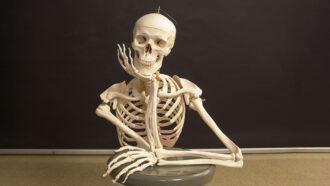 Health & Medicine
Health & MedicineLet’s learn about bones
Bones hold us up and help us fight gravity with every step. They also make blood cells, hormones and more.
-
 Humans
HumansChanging climates can take cooling tips from warm regions
When summer heat waves hit northern cities, people might look to keep cool using tropical building strategies — and forgotten architectural wisdom.
-
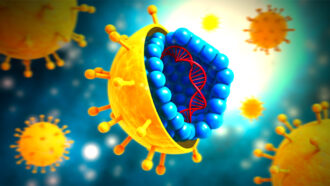 Health & Medicine
Health & MedicineTrio wins 2020 Nobel for discovery of hepatitis C
It took 50 years from discovery of hepatitis C to its cure. For their pivotal work in this area, three men will take home a 2020 Nobel Prize.
-
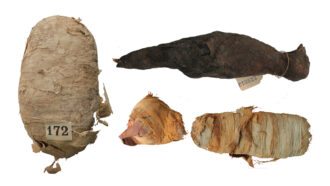 Archaeology
ArchaeologySee what these animal mummies are keeping under wraps
A new method of 3-D scanning mummified animals reveals life and death details of a snake, a bird and a cat that lived in ancient Egypt.
-
 Brain
BrainConfidence can make you miss important information
Being confident can feed a confirmation bias in us, new studies show. This bias can make your brain ignore other people’s ideas and any conflicting information.
-
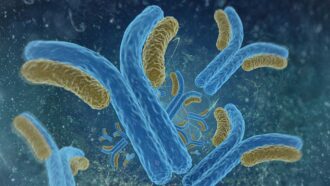 Health & Medicine
Health & MedicineA glowing new way to measure antibodies
Researchers invent a way to detect and measure antibodies with glowing proteins. Antibodies can mark exposure to various diseases.
By Sid Perkins -
 Archaeology
ArchaeologyStonehenge enhanced voices and music within the stone ring
Scientists built a 'Stonehenge Lego' model in a sound chamber to study how sound would have behaved in the ancient stone circle.
By Bruce Bower -
 Archaeology
ArchaeologyLet’s learn about ancient technology
Ancient people didn’t have the internet. Instead, they performed surgeries, made weapons and built monuments with wood, stones, rope and fire.
-
 Health & Medicine
Health & MedicineHealthy screen time is one challenge of distance learning
How you use screens is more important than the amount of time you spend on them. Sit less, experts say, and use those screens mainly to learn and engage with others.
-
 Psychology
PsychologyA secret of science: Mistakes boost understanding
Everyone makes mistakes. It turns out that how you view them says a lot about how — and how much — you’ll learn.
By Rachel Kehoe